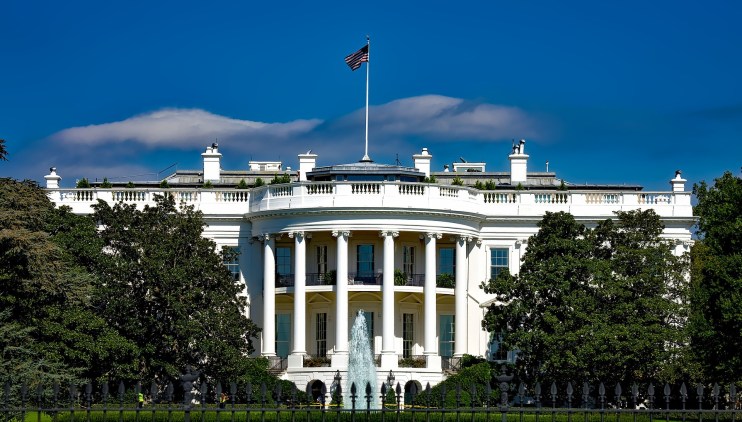US publishes crypto regulation framework as UK eyes crypto seizures

Data from CryptoCompare shows that the price of Bitcoin has moved sideways over the past week, starting and ending at $19,000, with its range over the past few days hitting both $19,500 and $18,500.
Ethereum’s Ether, the second-largest cryptocurrency by market cap, traded in a way similar to BTC, starting and ending the week at the same level: $1,300. The cryptocurrency flirted with the $1,400 and $1,250 levels throughout the week.
Headlines in the cryptocurrency space this week focused on several government-related developments relating to the market. The White House published its first-ever framework on cryptocurrency regulations late last week, covering the key areas of the cryptocurrency space that the Biden administration wants to focus on. The move follows President Joe Biden’s executive order on “Ensuring Responsible Development of Digital Assets.”
In a statement, the White House detailed how multiple government agencies came together and would seek to oversee the growth of the digital asset space with a focus on seven primary goals. These goals are:
- Protecting consumers, investors, and businesses
- Promoting access to safe and affordable financial services
- Fostering financial stability
- Advancing responsible innovation
- Reinforcing the U.S. standing as a financial leader
- Fighting illicit finance
- Exploring a central bank digital currency
The European Central Bank (ECB) has meanwhile announced the selection of five new partners to support the development of a digital euro prototype. Amazon is among the announced companies and will be responsible for developing e-commerce payments within the project.
The process is part of an ongoing investigation phase spanning over two years, with the ECB expecting to complete this phase by March 2023 by evaluating the prototypes produced. The central bank launched its investigation into a digital euro in July 2021.
Meanwhile, a new anti-money laundering bill introduced in the UK is set to make it easier for law enforcement to seize, freeze, and recover digital assets as part of a broader crackdown on money laundering.
The bill is designed to build on an earlier act that helped regulators place sanctions against Russia and freeze relevant assets in the country. Regulators have been concerned some Russians could be using crypto to bypass sanctions imposed after the invasion of Ukraine started.
Nasdaq launches crypto custody service for institutions
The second-largest US stock market operator, Nasdaq, is launching a cryptocurrency custody service as it aims to cash in on demand from institutional clients looking to invest in the cryptocurrency space.
Cryptocurrency exchanges have also seen a number of developments over the past week. Sam Bankman-Fried’s FTX is reportedly in talks with investors to raise up to $1 billion in new funding that would keep the company’s valuation at around $32 billion. Negotiations are said to be ongoing and the terms could change.
FTX’s revenue reportedly soared more than 1,000% in 2021 to $1.02 billion, from $89 million in the prior year. The deal is significant as it comes during a significant bear market in the cryptocurrency space.
Leading cryptocurrency exchange Binance has announced earlier this month it’s converting existing user balances of USDC, USDP, and TUSD into its own stablecoin BUSD. The move comes in a bid to boost liquidity, and at a time in which BTC trading into BUSD is booming, according to CryptoCompare’s August 2022 Exchange Review.
Rival exchange Kraken has seen its co-founder and current CEO announce he is going to give up his role and become chairman of the company’s board of directors.
The exchange has announced that Dave Ripley, Kraken’s longtime Chief Operating Officer, will succeed Powell in the coming months. The shake-up is significant as Powell has been an influential figure in the cryptocurrency space since Bitcoin’s early days and founded Kraken in 2011.
Finally, Coinbase has denied it engages in proprietary trading or acts as a market maker, while implying that “many” of its competitors do. The exchange’s denial came in response to a report alleging it hired traders to use the company’s funds in a bid to create a new source of revenue through trading and staking.
SEC claims Ethereum transactions fall under US jurisdiction
In a lawsuit, the U.S. Securities and Exchange Commission (SEC) has claimed Ethereum transactions fall under U.S. jurisdiction. The lawsuit was filed against crypto influencer Ian Balina over his alleged failure to register a cryptocurrency as a security before launching an initial coin offering (ICO) in 2018.
In a bold move, the SEC claimed it had the right to sue Balina, not only because his case concerns transactions made in the United States but also because the Ethereum network falls under the government’s jurisdiction.
Over the week, the Cardano (ADA) network also completed its Vasil hard fork, which is expected to bring “significant performance and capability” enhancements to the cryptocurrency’s blockchain. The fork was initially scheduled for July, but was delayed over an abundance of caution.
Following the upgrade, Cardano is set to keep on developing its layer-2 scaling solution, the Hydra head protocol, which processes transactions off the Cardano blockchain while taking advantage of its security.
Francisco Memoria is a content creator at CryptoCompare who’s in love with technology and focuses on helping people see the value digital currencies have. His work has been published in numerous reputable industry publications. Francisco holds various cryptocurrencies.
Featured image via Unsplash.